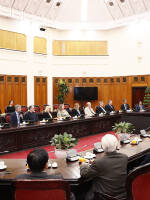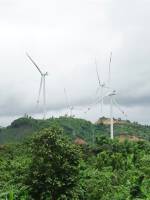To foster green growth, alongside the macroeconomic policies of the Party and the Government, it is crucial to enhance awareness and impart knowledge across all societal segments, with citizens playing a pivotal role.
Looking ahead to 2050, with a projected global population of around 10 billion, individuals embracing sustainable consumption practices can significantly contribute to emissions reduction, optimise natural resource utilisation, and promote eco-friendly practices in society and various sectors.
Hence, comprehensive dissemination of information is essential to instigate a shift from “grey” to “green” mindsets in lifestyles and consumption among citizens, businesses, and the community.
The Chính Phủ (Government) newspaper discussed with various experts, speakers, and business representatives the role of awareness-raising and encouraging actions towards green growth (GG).
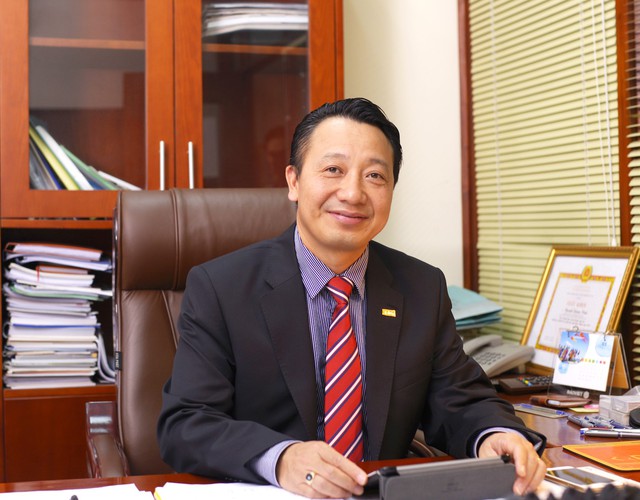
Nguyễn Quang Vinh, Vice Chairman of the Việt Nam Chamber of Commerce and Industry (VCCI), Chairman of the Việt Nam Business Council for Sustainable Development (VBCSD):
Businesses must undergo a fundamental shift in mindset, moving away from conventional practices towards a natural business approach that positively impacts the environment. This transition not only contributes to environmental protection and climate change mitigation but also facilitates sustained long-term growth for the businesses themselves.
Embracing a natural business model involves promoting a circular economy (CE), ensuring equity in energy transition, and actively reducing carbon emissions. Businesses are increasingly adopting these approaches for their inherent environmental benefits.
Furthermore, establishing a global accountability system towards the net-zero goal allows businesses to assess their contributions to climate change actions. It aids in the formulation of transition plans, reporting information to relevant stakeholders, attracting investments for climate-related activities, and achieving climate goals.
In terms of accountability, organisations such as VCCI/VBCSD have taken the lead in developing the Corporate Sustainability Index (CSI). Beyond serving as an assessment tool for sustainable development, the CSI supports Vietnamese businesses in effective sustainable management, encompassing improved accountability, sustainable reporting, and adherence to the ESG framework (environment, social, and governance).
The shift from traditional profit-oriented models to a “natural” business approach is gaining global traction as a new paradigm supported by the business community.
Nguyễn Công Thành, Head of the Department of Resource Economics and Environmental Management (National Economics University), Member of the Expert Advisory Board for the National Circular Economy Action Plan:
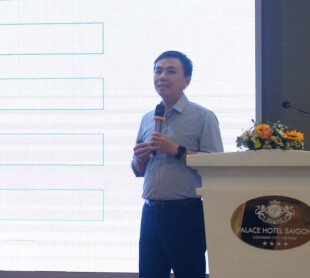
The Vietnamese Government has introduced policies to promote green growth (GG) and sustainable development, emphasising the need for specificity tailored to each stage and target audience. The implementation of a circular economy requires specific solutions at both macro and micro levels, including enforcing strategies, policies, and incentives for green investments in agriculture, establishing legal frameworks, guidance, and regulations related to emission reduction throughout the value chain. It also involves creating a data system, measuring tools, control mechanisms, emission reporting, and auditing/verification activities for emission scopes.
To effectively integrate these policies into economic and social life, there is a need to raise awareness about the critical role of the circular economy, green growth, and sustainable development among businesses, communities, and individuals. These entities are direct participants in society’s production and consumption processes.
Systematic communication is essential to clarify the roles and benefits of GG and the circular economy throughout society, aiming to achieve various goals, such as improved economic development, reduced emissions, lower costs for businesses, decreased prices for consumers, job creation, and enhanced access to basic services.
Hồ Quang Minh, Chairman of the NET ZERO Việt Nam-Asia Science and Cooperation Center (VANZA):

The business community holds a crucial role in the direct and extensive impact on the green growth (GG) process, with their awareness, mindset, and perception directly influencing the achievement of sustainable development goals. Presently, businesses not only focus on developing sustainable development strategies within their scope but also invest resources to enhance participation and capacity for suppliers and stakeholders in the business value chain, forming a sustainable ecosystem.
To attain GG, circular economy goals, and international commitments, Việt Nam requires substantial efforts not only from the government but also from the private sector, including businesses and direct producers, contributing at various scales but with the shared objective of sustainable economic development. Businesses are expected to lead in these activities and goals.
VANZA, a centre under the Vietnam-ASEAN Friendship Association, plays a vital role in connecting partners, experts, businesses, investors, and financial organisations in the fields of renewable energy and circular economy, tailored for Việt Nam and Asia’s conditions. It actively contributes to achieving Việt Nam’s Net Zero 2050 goal.
In pursuit of connecting businesses towards GG and the circular economy, VANZA also assumes the responsibility of disseminating information and providing training to its members on the significance and role of GG and the circular economy in the development strategy of each business and their benefits to the country’s overall development.
Khuất Quang Hưng, Director of External Relations and Communications at Nestlé Vietnam:

In the realm of green growth (GG) and the circular economy, it is crucial to widely communicate and promote new, effective models and initiatives within the community, businesses, and society.
Drawing on its extensive experience in GG and the circular economy, Nestlé Vietnam has introduced an innovative solution titled “Reducing Carbon Emissions at the Top of the Supply Chain.” Recognising that emissions from agricultural activities, particularly at the input raw material stage (the top of the supply chain), contribute significantly to the corporation’s total greenhouse gas emissions, Nestlé has directed its investments towards mitigating emissions from the production stage.
Nestlé’s approach to reduce emissions at the top of the value chain involves two strategic solutions: the promotion of regenerative agriculture and forest conservation and restoration.
Nestlé Vietnam’s regenerative agriculture program, like the NESCAFÉ PLAN launched in the Central Highlands since 2011, has yielded positive environmental impacts and economic benefits. This includes 16,000 households practising sustainable coffee cultivation (4C standards), 65 per cent of coffee gardens using agroforestry, and distributing over 73 million seedlings for regenerating 73,000 hectares of ageing coffee areas (as of July 2023).
Nguyễn Thị Ngọc Huệ, Director of Communications and External Relations at AEON Vietnam: Understanding the importance of circular economy and sustainable development will help businesses position themselves and develop their business strategies in the direction of sustainable development.

As a modern retail company, AEON Vietnam focuses on consumers and accompanies them in changing perceptions about the role of environmental protection.
For example, AEON Vietnam has stopped using plastic bags. To establish habits and help consumers get used to this program, AEON Vietnam has designed environmentally friendly bags that meet the needs of consumers, reduce costs, and have various designs. In this way, consumers gradually abandon the habit of using plastic bags.
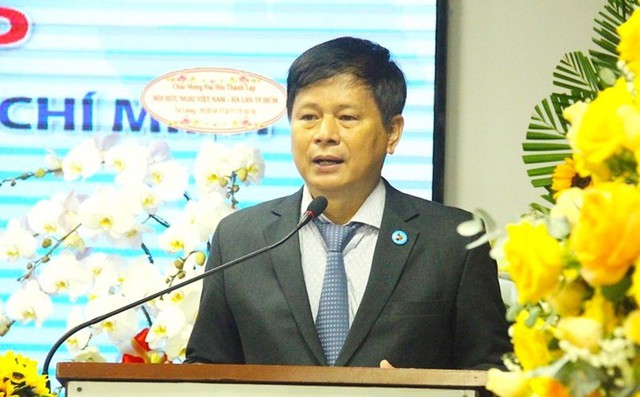
Trần Trọng Dũng, Vice Chairman of the Vietnam Journalists Association, in charge of the Southern region:
Collaboration with the macro policies of the Party and the Government to enhance awareness among people and communities about the roles of GG and sustainable development is crucial for press agencies.
Press outlets, acting as conduits of information, play a pivotal role in conveying updated information to the public regarding strategic directions, government policies, and relevant management agencies related to the implementation of COP26 commitments, sustainable development strategies, climate change adaptation in Vietnamese agriculture, green economy, and circular economy.
Media and press agencies not only act as bridges but also take a leading and active role in disseminating information and promoting exemplary models of sustainable business practices within the economic system. They work in tandem with the business community to collectively implement sustainable development initiatives, contributing to the establishment of a green future for current and future generations.
Furthermore, the press serves as a platform to recognise and commend organisations, units, businesses, and individuals that have made significant contributions and efforts in implementing valuable tasks and solutions. This reinforces and expands the dissemination of new models and initiatives effectively throughout society, thus promoting environmental protection and sustainable development, advancing GG, digital transformation, circular economy, and energy transition.
Several programs and competitions related to GG and circular economy are highlighted, such as training programs for press agencies on sustainable development, organised by Nestlé Vietnam and the Business Council for Sustainable Development, the Vietnam Chamber of Commerce and Industry (SDfoB – VCCI). Annual press competitions, including the Environmental Press Award by the Ministry of Industry and Trade, the Green Development Press Award by the Vietnam Journalists Association and the Resources and Environment Newspaper, and the competition “Green Solutions towards a Circular Economy, Sustainable Development” organised by the Centre for Media and Environmental Communication (Ministry of Natural Resources and Environment), are also notable.
(VNS)


